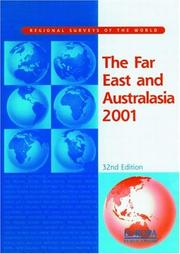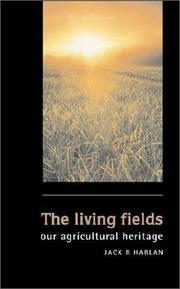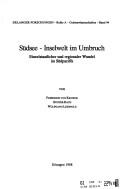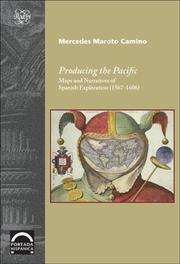| Listing 1 - 9 of 9 |
Sort by
|
Map
Abstract | Keywords | Export | Availability | Bookmark
 Loading...
Loading...Choose an application
- Reference Manager
- EndNote
- RefWorks (Direct export to RefWorks)

Abstract | Keywords | Export | Availability | Bookmark
 Loading...
Loading...Choose an application
- Reference Manager
- EndNote
- RefWorks (Direct export to RefWorks)
Article
Abstract | Keywords | Export | Availability | Bookmark
 Loading...
Loading...Choose an application
- Reference Manager
- EndNote
- RefWorks (Direct export to RefWorks)
Géographie de la population --- GEOGRAPHIE ZONALE --- PACIFIQUE SUD --- MIGRATIONS EXTERNES
Article
Abstract | Keywords | Export | Availability | Bookmark
 Loading...
Loading...Choose an application
- Reference Manager
- EndNote
- RefWorks (Direct export to RefWorks)
GEOGRAPHIE ZONALE --- PACIFIQUE SUD --- ATLAS NATIONAUX ET REGIONAUX
Map
Year: 1966 Publisher: Wellington : New Zealand Oceanographic Institute, Department of Scientific and Industrial Research,
Abstract | Keywords | Export | Availability | Bookmark
 Loading...
Loading...Choose an application
- Reference Manager
- EndNote
- RefWorks (Direct export to RefWorks)
Oceania --- South Pacific Ocean --- New zealand --- Océanie --- Pacifique Sud, Îles du --- Nouvelle-Zélande --- Pacifique (océan ; sud)

ISBN: 0521401127 Year: 1995 Publisher: Cambridge : Cambridge University Press,
Abstract | Keywords | Export | Availability | Bookmark
 Loading...
Loading...Choose an application
- Reference Manager
- EndNote
- RefWorks (Direct export to RefWorks)
Agriculture --- agriculture --- History --- Plante --- plants --- Provenance --- Système de culture --- cropping systems --- Afrique --- Africa --- Amériques --- Americas --- Pacifique Sud --- South Pacific --- Crops --- Plant remains (Archaeology) --- Plants, Cultivated --- Traditional farming --- Plant and Crop Sciences. Plant Breeding and Genetics --- Origin. --- History. --- Plant Genetic Resources, Gene Banks --- Plant Domestication --- Plant remains (Archaeology). --- Plant Domestication. --- agriculture. --- Archeologie
Book
ISBN: 1760462888 1760462896 Year: 2019 Publisher: ANU Press
Abstract | Keywords | Export | Availability | Bookmark
 Loading...
Loading...Choose an application
- Reference Manager
- EndNote
- RefWorks (Direct export to RefWorks)
"This book is inspired by the University of the South Pacific, the leading institution of higher education in the Pacific Islands region. Founded in 1968, USP has expanded the intellectual horizons of generations of students from its 12 member countries—Cook Islands, Fiji, Kiribati, Marshall Islands, Nauru, Niue, Samoa, Solomon Islands, Tokelau, Tonga, Tuvalu and Vanuatu—and been responsible for the formation of a regional elite of educated Pacific Islanders who can be found in key positions in government and commerce across the region.At the same time, this book celebrates the collaboration of USP with The Australian National University in research, doctoral training, teaching and joint activities. Twelve of our 19 contributors gained their doctorates at ANU, most of them before or after being students and/or teaching staff at USP, and the remaining five embody the cross-fertilisation in teaching, research and consultancy of the two institutions.The contributions to this collection, with a few exceptions, are republications of key articles on the Pacific Islands by scholars with extensive experience and knowledge of the region."
Oceania --- Oceanica --- South Pacific --- South Pacific Ocean Region --- South Pacific Region --- South Sea Islands --- South Seas --- Southwest Pacific Region --- Islands of the Pacific --- Social conditions. --- University of the South Pacific. --- Australian National University. --- Fiji. --- USP --- U.S.P. --- Université du Pacifique Sud --- Moana Nui, Te --- Moana Oceania --- Te Moana Nui --- Economic conditions. --- Politics and government. --- Australia --- Pacific Rim countries --- Education --- Pacific Islands --- education

ISBN: 3922135552 9783922135555 Year: 1988 Volume: 44 Publisher: Erlangen: Universitätsbund Erlangen-Nürnberg,
Abstract | Keywords | Export | Availability | Bookmark
 Loading...
Loading...Choose an application
- Reference Manager
- EndNote
- RefWorks (Direct export to RefWorks)
Oceania --- Politics and government --- 325.4 <961> --- 308 <954> --- Koloniaal bestuur. Binnenlandse politiek van kolonien--?<961> --- Sociografie. Sociaal economische geografie. Sociale toestand--Papua--(voormalig Brits) --- Politics and government. --- 308 <954> Sociografie. Sociaal economische geografie. Sociale toestand--Papua--(voormalig Brits) --- 325.4 <961> Koloniaal bestuur. Binnenlandse politiek van kolonien--?<961> --- Oceania - Politics and government --- Pacifique sud, region du --- Pays en voie de developpement --- Politique et gouvernement

ISBN: 9042019948 9401202923 1417592028 9781417592029 9789401202923 9789042019942 Year: 2005 Volume: 18
Abstract | Keywords | Export | Availability | Bookmark
 Loading...
Loading...Choose an application
- Reference Manager
- EndNote
- RefWorks (Direct export to RefWorks)
Producing the Pacific offers the reader an interdisciplinary reading of the maps, narratives and rituals related to the three Spanish voyages to the South Pacific that took place between 1567 and 1606. These journeys were led by Álvaro de Mendaña, Pedro Fernández de Quirós and Isabel Barreto, the first woman ever to become admiral of and command a fleet. Mercedes Maroto Camino presents a cultural analysis of these journeys and takes issue with some established notions about the value of the past and the way it is always rewritten from the perspective of the present. She highlights the social, political and cultural environment in which maps and narratives circulate, suggesting that their significance is always subject to negotiation and transformation. The tapestry created by the interpretation of maps, narratives and rituals affords a view not only of the minds of the first men and women who traversed the Pacific but also of how they saw the ocean, its islands and their peoples. Producing the Pacific should, therefore, be of relevance to those interested in history, voyages, colonialism, cartography, anthropology and cultural studies. The study of these cultural products contributes to an interpretive history of colonialism at the same time that it challenges the beliefs and assumptions that underscore our understanding of that history.
Mendaña de Neira, Alvaro de, --- Queirós, Pedro Fernandes de, --- Barreto Castro de Mendaña, Isabel, --- South Pacific Ocean --- Pacifique Sud --- Discovery and exploration --- Spanish --- Description and travel --- Découverte et exploration espagnoles --- Descriptions et voyages --- Discovery and exploration [Spanish ] --- Cartes --- Geographical perception. --- Travelers' writings, Spanish. --- Spanish travelers' writings --- Spanish literature --- Environmental perception --- Maps, Mental --- Mental maps --- Perceptual cartography --- Perceptual maps --- Perception --- Orientation (Psychology) --- Space perception --- Travelers' writings, Spanish --- History and criticism. --- Pacific Ocean --- Psychological aspects.
| Listing 1 - 9 of 9 |
Sort by
|

 Search
Search Feedback
Feedback About UniCat
About UniCat  Help
Help News
News